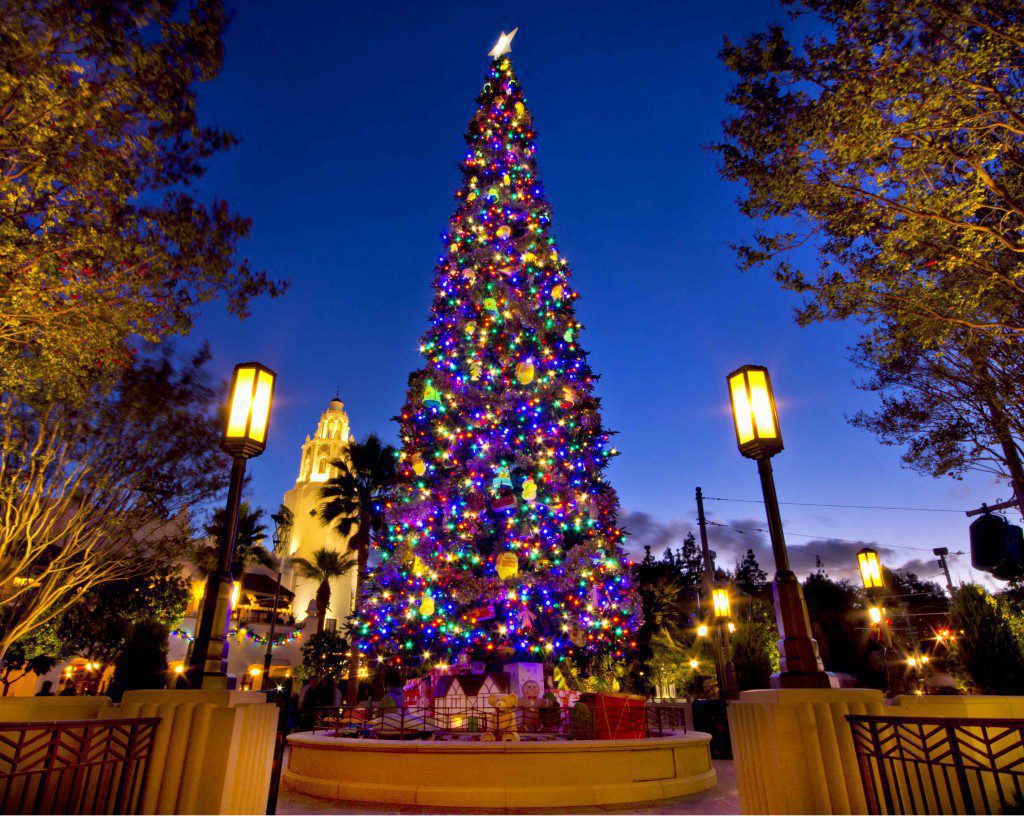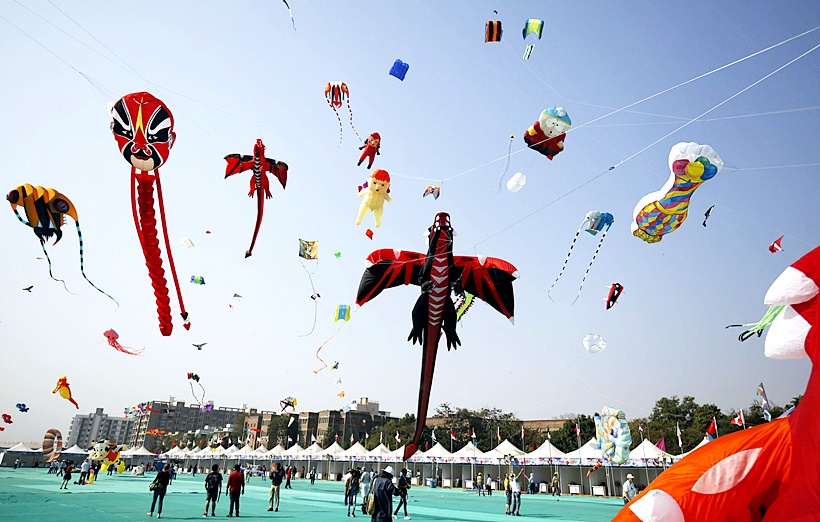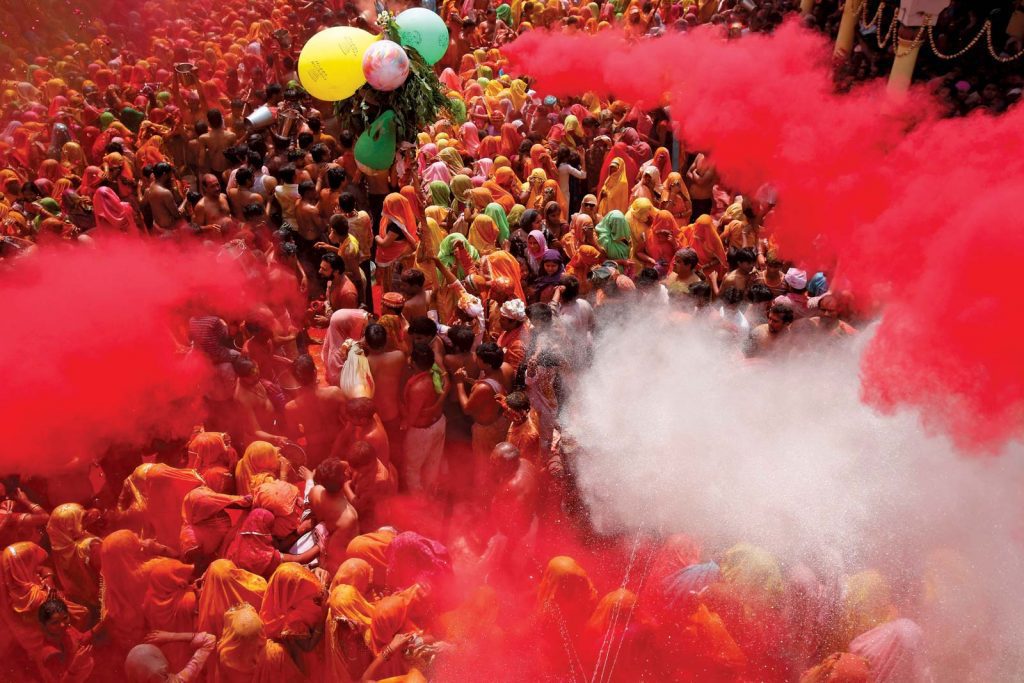Makar Sankranti is a major harvest festival observed by Hindus throughout India that occurs in the month of January. It symbolises the end of winter and the beginning of longer days as the sun moves northward. In 2024, Makar Sankranti will fall on Monday, 15 January. Makar Sankranti is observed differently around the country, and the cultural importance of the holiday varies geographically as we travel from one state to the next, with each commemorating and embracing the new harvest season in its unique style.
1. Thai Pongal, Tamil Nadu
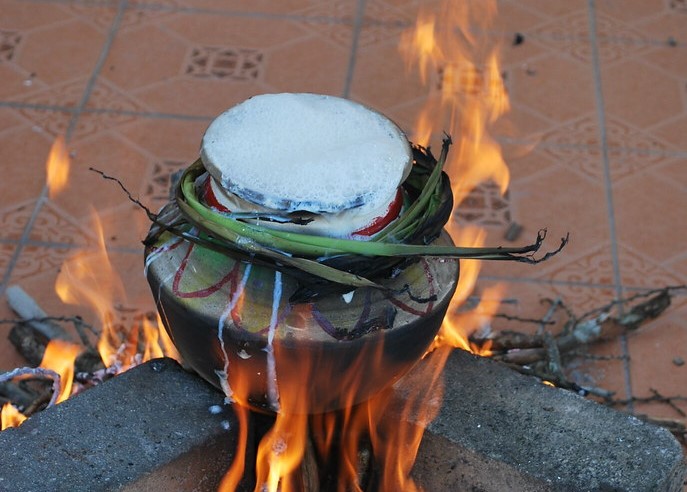
In Tamil Nadu, Thai Pongal encourages the practice of expressing gratitude to the sun deity. The ceremony begins with a boiling operation of rice, jaggery, and milk in ancient clay pots. The words ‘Pongalo Pongal‘ is recited with a conch blow till the milk overflows the vessel, symbolising good luck. The cooked rice is then presented to the sun god before being distributed to all in attendance during the festival. The elders then shower presents on the youth, which is followed by traditional dances, music, and other entertainment.
[Also Read: Thimithi: The Fire-Walking Festival of India]
2. Uttarayan, Gujarat
Makar Sankranti is celebrated as kite-flying day in Gujarat. Ahmedabad, Gujarat’s capital, leads the way in Uttarayani celebrations and hosts the International Kite Festival. The festival is a time of thankfulness, since it commemorates the waking up of the gods from their lengthy slumber. The gods, who were thought to have slept for six months, have awoken, and the gates of heaven have been opened. It is also a signal to indulge in joy. People of all ages fly kites from sunrise to dark, celebrating the spirit of the day. Kites of all colours and tints brighten the beautiful January sky. Crowded rooftops, fun-loving rivalry to outdo each other, and delicious Gujarati feast with sweets like undhiyu and chikkis, are the day’s highlights.
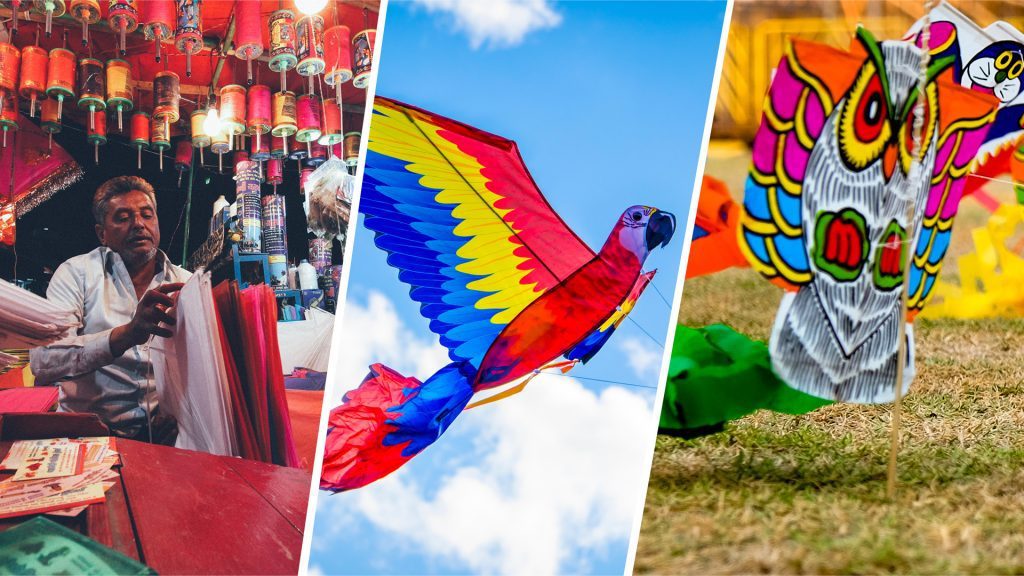
Pro tip: The night before is electric with brisk business in buying and selling kites, in amazingly numerous bulk purchases. The Patang Bazaar (kite market), situated in the heart of Ahmedabad city, is open 24 hours a day during the Uttarayan week. A visit to the Bazaar will help you get your hands on the most beautiful kites. If you plan to attend the vibrant celebrations, book a convenient car rental in Gujarat with a local driver and get ready to be mesmerised by the dance of the kites.
[Also Read: Jaipur Kite Festival]
3. Lohri, Punjab
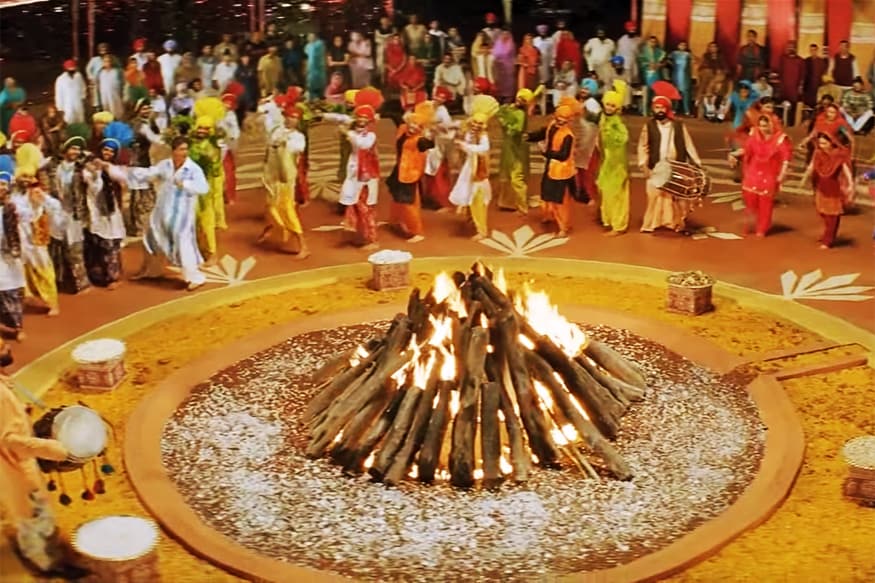
This day is celebrated by Punjabis on January 13th and is highlighted by a bonfire, colourful clothing, music, and dancing. Lohri heralds the end of winter, the arrival of spring, and the start of a new year. The celebration is usually tied with the rabi crop harvest. Since the traditional period to harvest sugarcane crops is January, some consider Lohri to be a harvest celebration. As a result, Punjabi farmers consider the day after Lohri (Maghi) to be the financial New Year. The three snacks linked with this occasion are gur rewri, peanuts, and popcorn. Aside from these, it is customary in Punjab villages to consume gajak, sarson da saag, and makki di roti during Lohri. It is also customary to have til rice, a dish of sweet rice flavoured with jaggery (gur) and sesame seeds.
To witness the extravagant Lohri celebrations, Chandigarh, Amritsar, Jalandhar, Ludhiana are the places to be. Visit these places by booking a convenient car rental in Punjab with a local driver. If you love dancing, then you must be part of the Lohri celebrations in Ludhiana, as professional dance troupes perform Bhangra and Gidda on the streets in colourful traditional attire.
[Also Read: A Vacation at a Farm Stay in Punjab]
4. Poush Sôngkrnti, Bengal

Poush sôngkrnti (Poush Sankranti) is an auspicious day in Bengal when farmers begin harvesting their crops. Because the harvest season is associated with abundance, food is an important aspect of Poush Sankranti, and many ceremonies concentrate around rice-based foods, as this is the period when paddy is harvested. Pithe, which is produced from rice flour, is the most prominent food for the celebration. A must-have is payesh or rice kheer prepared with date palm jaggery. These are first offered during Lakshmi Puja before being distributed to family and friends. Farmer families in rural Bengal clean their homes, design Alpana or rangoli with rice flour paste, and hang little bunches of mango leaves and rice stalks to welcome Lakshmi. Lakshmi Puja is performed using rice grains to honour the goddess of wealth.
5. Ellu Birodhu, Karnataka
Makara Sankranti is celebrated in Karnataka with a custom called Ellu Birodhu, in which ladies share ‘Ellu Bella‘ (a regional delicacy prepared from freshly cut sugarcane, sesame seeds, jaggery, and coconut) with at least ten households. During the festivities, a common Kannada saying “ellu bella thindu olledanne maathadi“ is chanted, which means “consume the mixture of sesame seeds and jaggery and talk only nice things”. Farmers celebrate it as Suggi, or the harvest festival, and dress their bulls and calves in colourful costumes. Farmers jump over the fire with their bulls in a rite known as Kichchu Haayisuvudu.
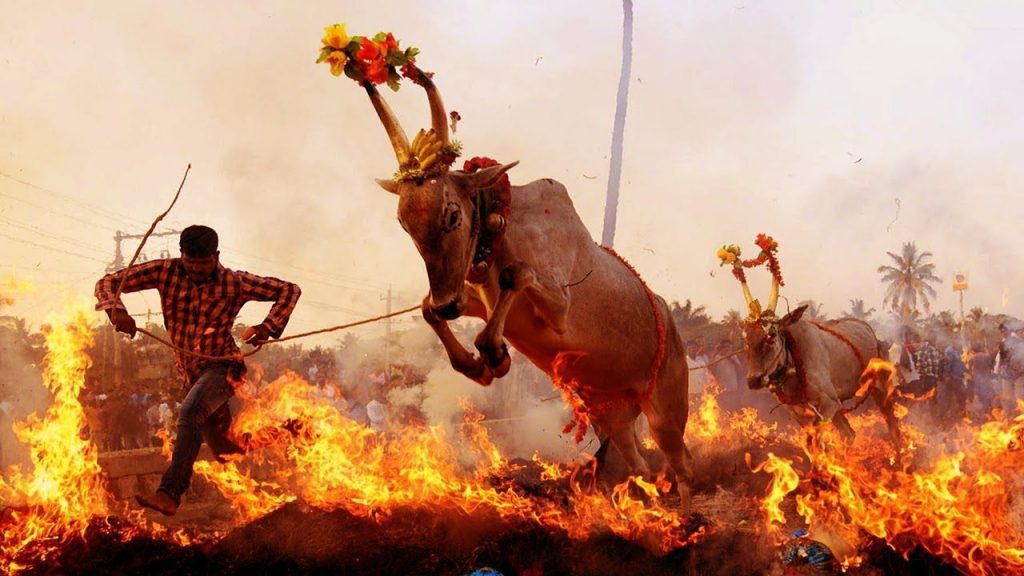
The Kichchu Haayisuvudu festivities take place in the rural areas of Mysuru and Mandya. The practice is meant to ward off evil influences and bring good luck and prosperity. You can catch a glimpse of this unique ritual by booking a cab in Karnataka, so you can navigate rural Karnataka seamlessly with a local driver.
6. Bihu Magh/Bhogali, Assam

Magh Bihu is one of Assam’s most auspicious celebrations. The sun’s transitory phase towards the north is celebrated with a great zeal and passion due to its substantial influence on agriculture and crops. The festival is divided into two parts; the first day, Uruka or Bihu Eve, is the preparation day. People (mainly women) prepare a unique meal, which includes traditional foods such as chira, pitha, laru, and curd. Meanwhile, in the fields, young people (mainly males) construct a hut known as Bhelaghar out of thatch, leaves, and bamboo.
On the second day, a bonfire known as Meji is lit as a prayer offering to the gods in the early hours of the morning. The huts built on the previous day are burnt down. Pot-breaking, buffalo and cock battles and egg fights are among the traditional games played on the day.
The pleasures of feasting on delectable dishes extend roughly a week. Rice cakes such as til (sesame) pitha, narikol (coconut) pitha, tekeli pitha, ghila pitha, and sunga pitha are included. Traditional chicken, duck, fish, and mutton curries are a part of the feast. Since it is the harvest festival, rice is commonly used in all of the dishes.
[Also Read: 10 Indian Food Items That You Must Try Once In A Lifetime]
7. Khichdi Parv, Uttar Pradesh
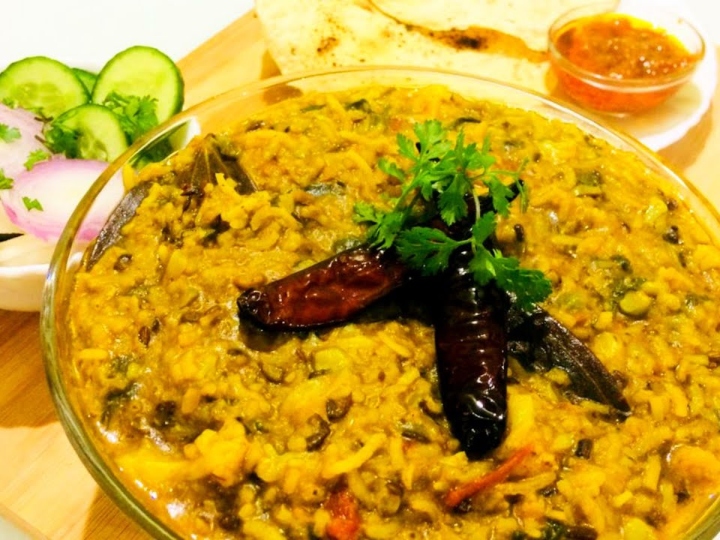
In Uttar Pradesh and other regions of North India, the famous Makar Sankranti festival is known as Khichdi Parv. The date of Khichdi Parv in 2024 is January 15. The puja and the timing to make offerings is in the early hours during sunrise. The most important practice on this day is bathing in Prayag’s Sangam (Allahabad). You can participate in this and witness the festivities by booking a taxi in Uttar Pradesh with a local driver. People make a special meal called Khichdi and serve it to Surya, the Sun God. On this day, giving alms and providing gifts to the destitute is highly regarded.
Scholars believe that the tradition of preparing Khichdi began in Gorakhpur. On Makar Sankranti, a renowned Hindu Yogi named Baba Gorakhnath used to prepare khichdi. The Nath Yogis were fighting against Khilji, and the incessant combat had taken its toll on their health. Then Baba Gorakhnath cooked khichdi by combining rice, dal, and veggies and offered it to the Yogis, who enjoyed it and regained their vitality and power. Even today, a Khichadi Mela is celebrated every Makar Sankranti at the Baba Gorakhnath Temple in Gorakhpur, Uttar Pradesh.
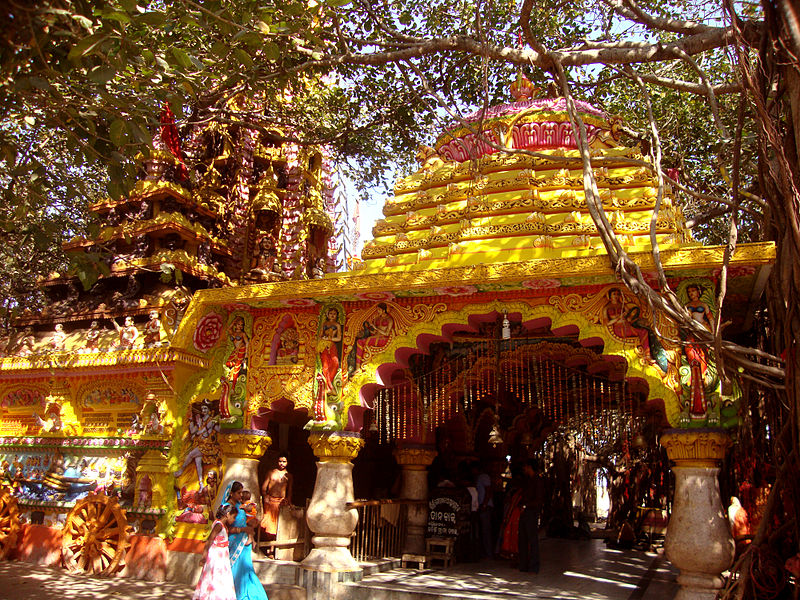
The shops at ‘khichdi mela’ near Gorakhnath Temple will be decked up with special ‘khajla‘ sweets. You can book a cab in Gorakhpur with a local driver to participate in the festivities and relish the goodness of the delicious kichidi and khajla.
Witness the splendour of these places by booking a car rental to take you to all these places with a local driver. Install Savaari cab booking app for offers and discounts on outstation rentals.
Last Updated on January 31, 2024 by



